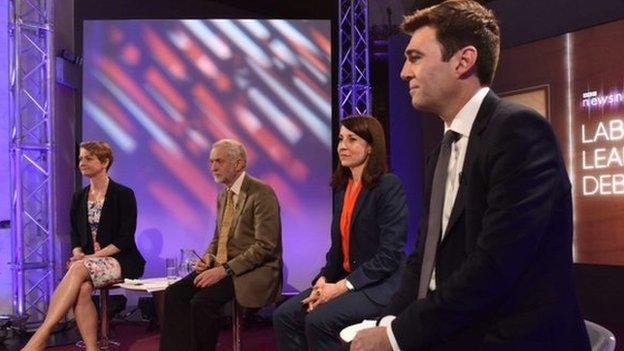Perceptions of Ed Miliband 'among reasons' for Labour loss
- Published
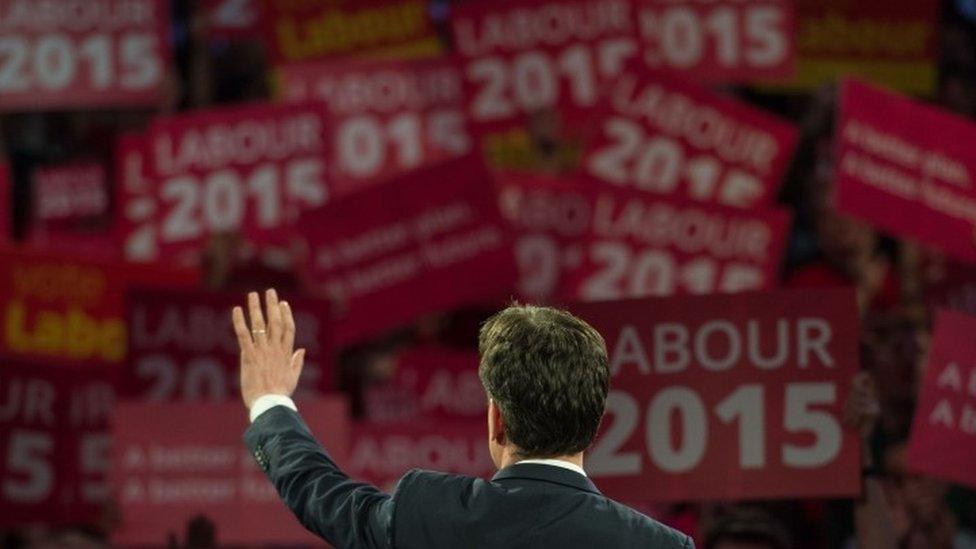
The report suggests the party failed to turn popular policies into a compelling narrative
Ed Miliband was not judged to be as strong a leader as David Cameron, an internal Labour report into why the party lost the 2015 election has found.
The report,, external overseen by former Cabinet minister Dame Margaret Beckett, said the comparative standing of the two men was one of four reasons for the defeat.
Other factors identified were failures in economic and immigration policy and the fear of the SNP propping up Labour.
The report said Labour faced a "huge challenge" to win again in 2020.
The report concludes that the party needs a massive upswing in its fortunes in England and Scotland if it is to be returned to power in five years time.
It urges the party to do more to appeal to older voters and to construct a clear "policy narrative" that can be sold to the public.
The BBC's political editor Laura Kuenssberg said the "hardest" part of the report for Labour to digest would be the fact that it needs to win 94 seats in 2020 just to secure a parliamentary majority of two.
'Lack of connection'
Beckett: Labour would not have won power with another leader
The report concluded that Labour's "ground campaign" during the election was strong but suggests many voters had already made their minds up and opinion polls suggesting it was neck and neck with the Conservatives were wrong.
Pollsters and activists on the doorstep consistently heard four things that could explain the party's performance, which saw it lose ground in key marginal seats in England and found itself all but wiped out in Scotland. They were:
Ed Miliband wasn't judged to be as strong a leader as David Cameron
A failure to shake off "the myth" that Labour was responsible for the financial crash and failure to build trust on the economy
An inability to deal with the issues of "connection" and, in particular, failing to convince on benefits and immigration
The fear of the SNP "propping up" a minority Labour government
On the issue of leadership, the report argues that Mr Miliband enjoyed a "surge" in 2015 and performed well during the campaign itself. But it says he was unable to shift public perceptions, borne out in opinion polls, that David Cameron was regarded as more "prime ministerial".
"Over the period 2010-15, what the polls did consistently show was that, when asked if 'this man could be prime minister', David Cameron was rated above Ed Miliband. Since he actually was prime minister, this response was perhaps less than surprising.
"It is the fate of every Labour leader of the opposition to be the target of ferocious attack from partisans sections of the media," it added. "However, Ed Miliband faced an exceptionally vitriolic and personal attack."
'Brutal simplicity'
The report says assumptions that Labour lost the election because it was too left-wing and because its policies were unpopular was overly simplistic and should be treated with caution, pointing out that the party's most radical initiatives - such as an energy price freeze and mansion tax on expensive properties - were among those most liked by the public.
But it says Labour lacked a consistent over-arching theme and struggled to communicate its approach to the voters in contrast to the "brutal simplicity of the Tories and UKIP".
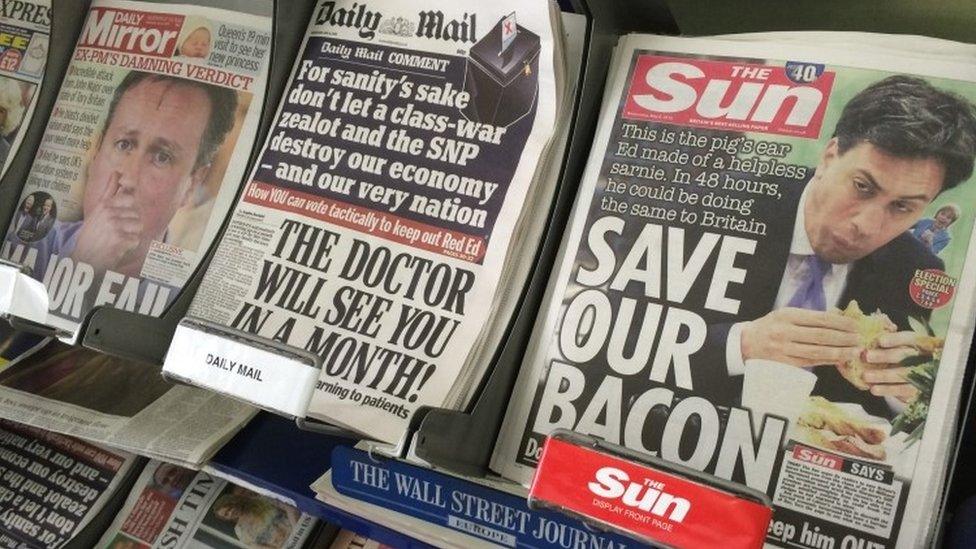
The report claims elements of the media set out to "destroy" Ed Miliband
"The reaction to the 2015 result was inevitably an emotional one for Labour because it was such a surprise," Dame Margaret said.
"There was certainly no complacency in the Labour ranks, but the polls showed us neck and neck with the Tories, when clearly we weren't.
"There are certainly lessons to learn from defeat. This report has been a key part of recognising areas we need to improve on and building on aspects of our campaign that performed well."
2020 challenge
On the challenge facing Labour in 2020, the report concluded the party's task would be made harder by demographic changes increasing the number of voters over the age of 65, a group which overwhelmingly voted Conservative in 2015.
Likely changes to parliamentary boundaries would also not help, it said, as well as the prospect of the SNP entrenching itself in Scotland.
"It is critically important for the country that Labour is able to win the 2020 election but we will face huge challenges," it said. "On current boundaries we need 94 gains to secure a majority of two."
"Were Labour to fail to recover in Scotland, it has been estimated that the swing required in England and Wales from the Tories to Labour would be 12.5% to secure an overall majority."
Shadow business secretary Angela Eagle said the party must pay close attention to the report as it sought to "remake its appeal", telling the BBC that Labour had come back from heavy defeats before and would do so again.
But Tom Baldwin, Mr Miliband's former director of communications, said the current leadership had not given enough thought to why Labour lost. "Unless we start thinking about why we lost, we won't be able to win again," he told the BBC News Channel.
And the Conservatives said the report showed Labour "still haven't learnt the lessons from their economic mistakes" between 2005 and 2010, in relation to excessive levels of spending and borrowing.
- Published17 January 2016
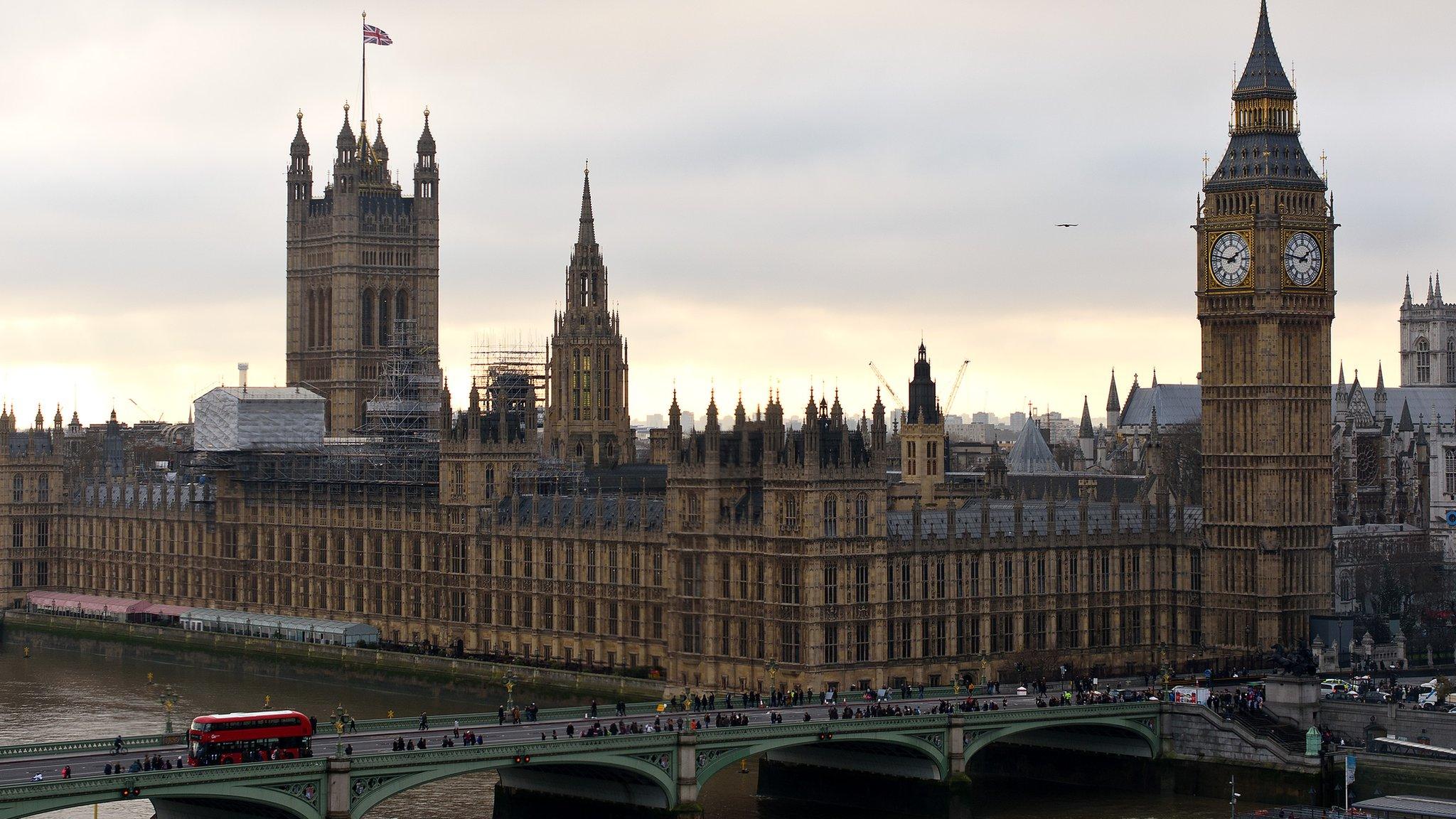
- Published19 January 2016
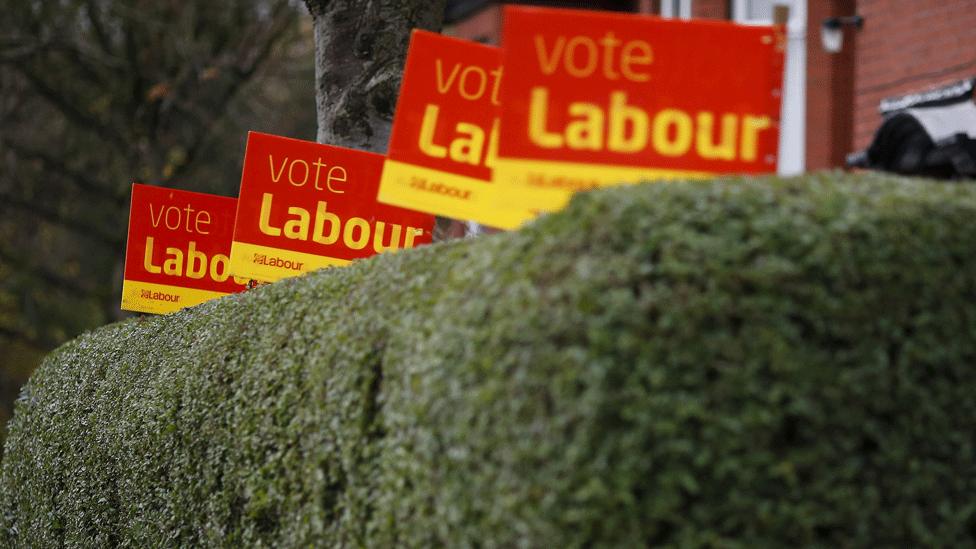
- Published14 January 2016
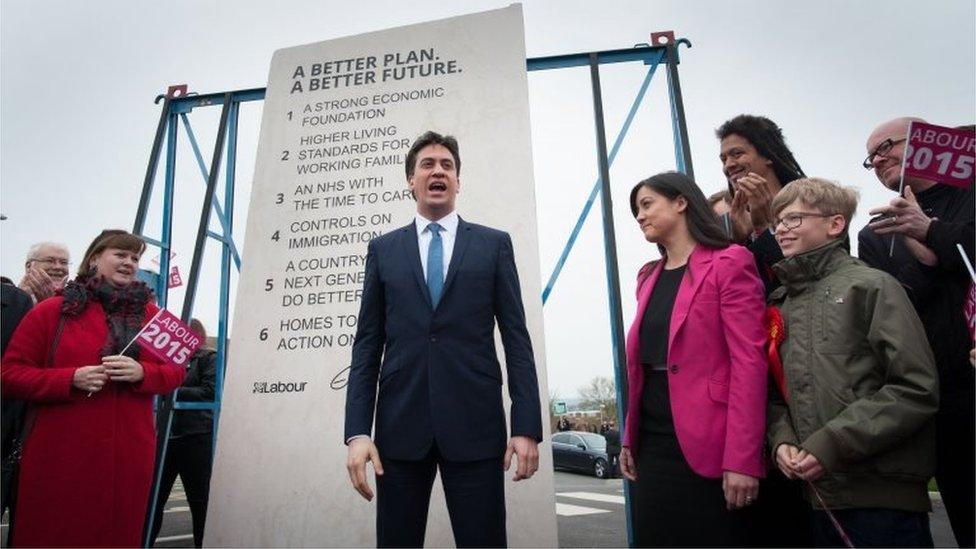
- Published19 January 2016
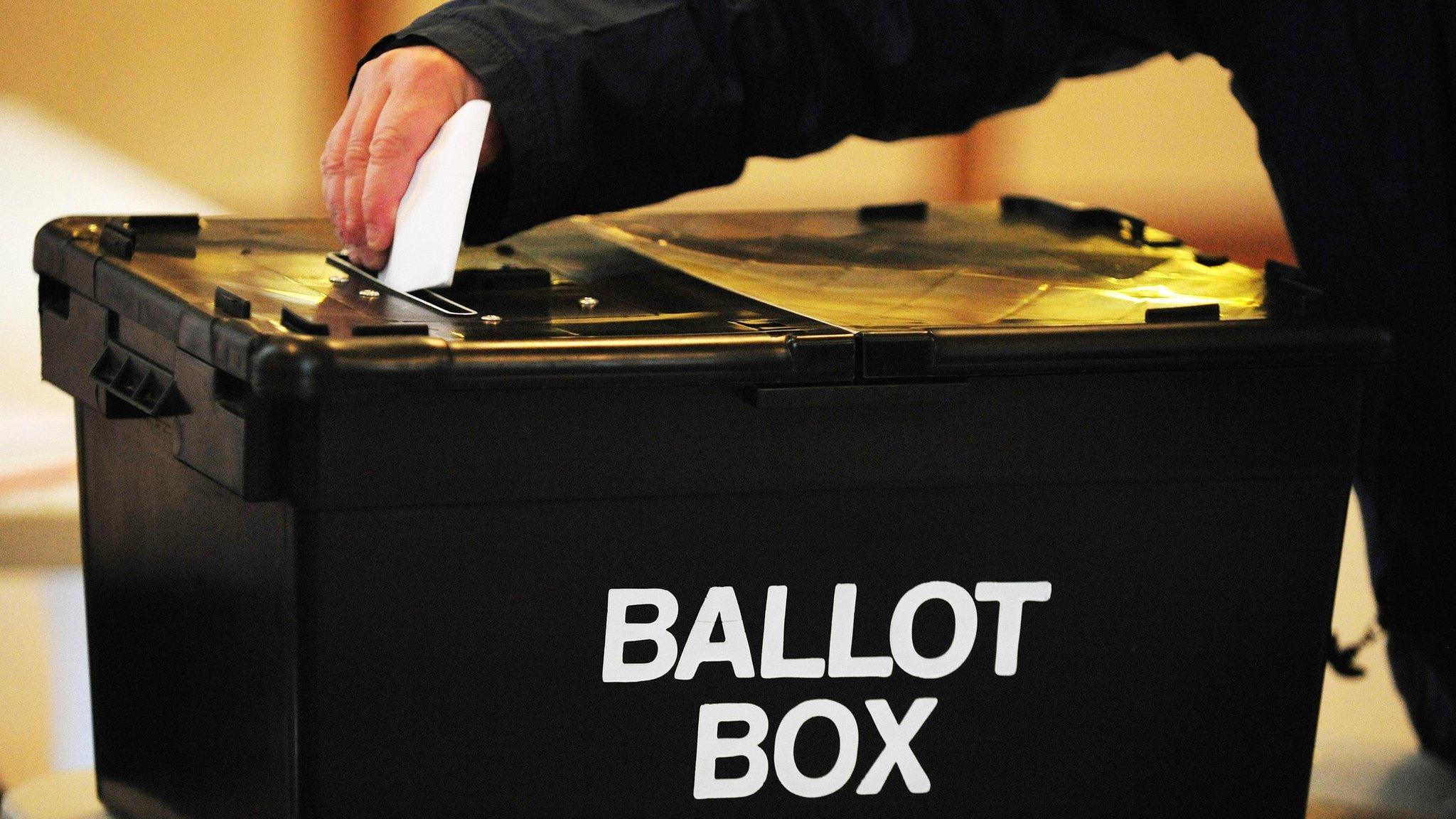
- Published24 June 2015
